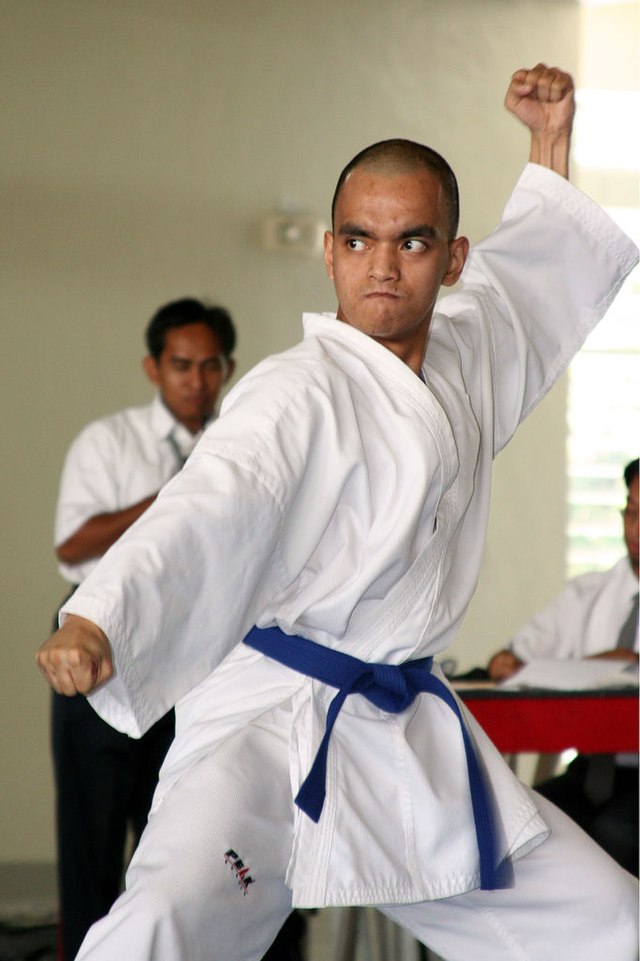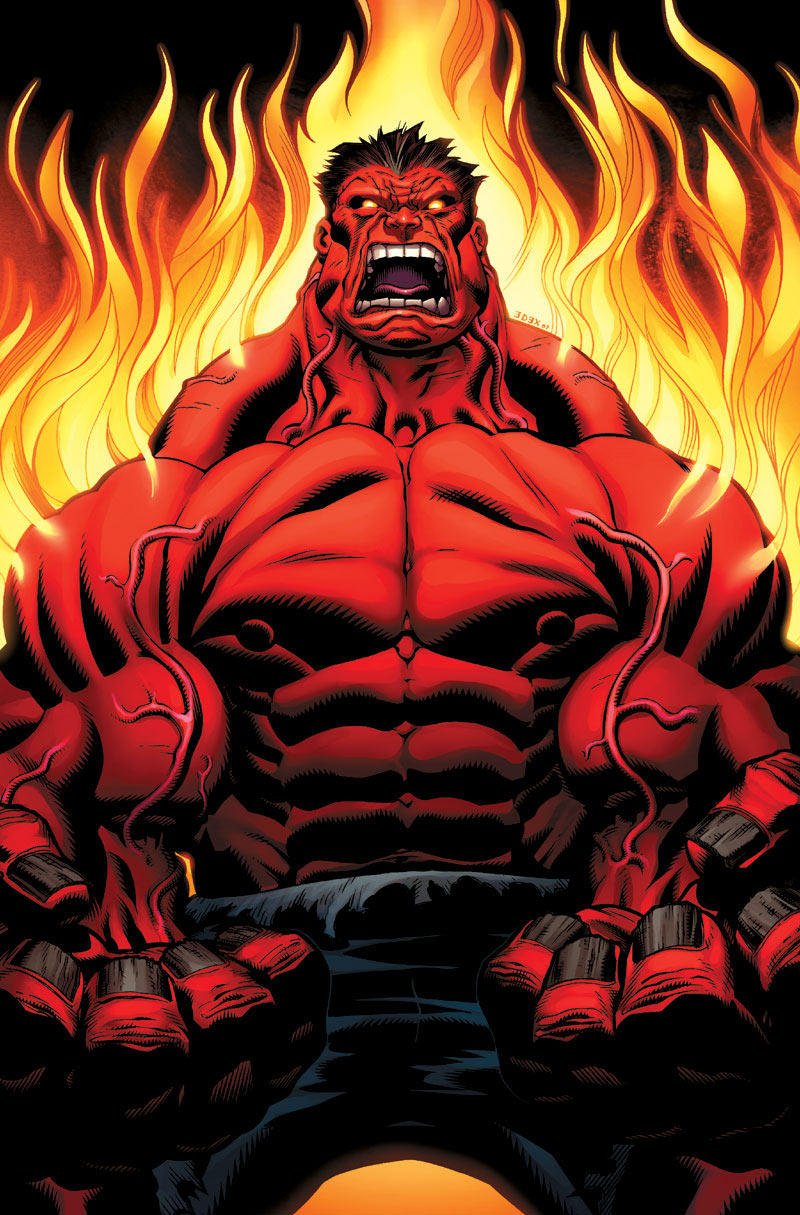Perhaps it is needless to say, but I find all of this alarmist and false. However, I also find the response from certain parts of some martial art communities disingenuous as well. The typical response to allegations of us being a bunch of meat heads tends to sound like something written by a first year philosophy student. "Martial arts isn't violence, its about peace and enlightenment!" You especially see this coming from traditional martial arts communities, where they exoticize the Asian roots of the martial arts they train and think its, like, totally spiritual and zen.
"OMG, are you Asian? You must be super wise and meditate a lot and know Karate!"
"Ma'am, first of all, Karate is Japanese and I'm of Chinese descent. Second of all, no, I'm not some Buddhist monk, I'm just a guy who plays basketball."
This is silly, because no matter what semantics game you try to play, at the end of the day a quality martial art is still teaching you how to fight. No amount of cute sounding tangents will change the fact that you are learning how to effectively harm someone else while minimizing harm to yourself. Yet children who practice martial arts are far less likely to exhibit bullying behavior. What gives?
First and foremost, it is important to realize that, child or adult, bullying can be derived from either too little self-confidence or too much. This distinction is important, because martial arts deals with both of these issues in different ways.
For people who have low self-esteem, the answers are obvious. When you develop any sort of skill, your self-esteem increases. Being able to develop and hone a talent gives you a tangible accomplishment that you can be proud of. When it's gardening, you can eat something you grew and literally enjoy the fruits of your labor. When you write, you can take pride in all the groupies and extravagant wealth you gain from your moderately interesting Blogger posts. When you train martial arts, you can feel proud about your ability to Karate the hell out of things.

I'm gonna Karate the shit outta you, persistent self-doubt!
On top of that, martial arts also leads to everything else associated with any other physical activity, too, such as better health and energy levels. There is also the fact that, hey, you are training with a group of human beings, and that means people you can socialize with! If its a tight knit enough school, you may even hang out with them outside of class. Rad, right?
So now we have a pretty good idea of why people with low self-esteem might benefit from martial arts. But what about jerks with high self-esteem?
The answer to this question is the sense of humbleness that you get from good martial arts. To reiterate a post from my previous blog, a good martial art is a martial art that trains with aliveness. Aliveness means that some aspects of your training involve an opponent that is actually offering resistance against you in a way that isn't in a set pattern.
The ultimate form of aliveness is sparring/kumite/randori/rolling/foreplay/whatever your art calls it, where you go against an opponent in a simulated match where both participants are trying to gain the upper hand. But there are other forms of aliveness, too. For instance, hitting punching mitts while the holder randomly throws counterattacks you have to block or dodge, or drilling techniques where your partner resists instead of being compliant.
When you consistently go against people like this it is phenomenally humbling, especially when you're first starting out and go against more experienced students. It is particularly humbling if you're a dude. You come in with the same programming that every guy between the age of 14 and dead has: a unique, cognitively dissonant bullshit blend of "I'm gonna learn to flying spin kick or rip off the limbs of all the opponents I ever meet!" and "that martial arts stuff won't work on me, bruh, I just see red and hulk out on them for like thirty seconds straight." Flying spin kicks and thirty seconds of hulking out may describe my love making style, but you quickly come to realize that these lines of reasoning are both utter bullshit when you actually put yourself to the test in a fight.

I've been in, like, at least a million street fights, man. I've seriously lost count at this point.
The thing is, when you fight against someone, myths about fighting become dispelled pretty easily. When you punch someone's nose in Boxing, you learn that anecdotes about killing someone by sending nose cartilage into their brain is bullshit. When you learn the sciences of fighting for chokes in Jiujitsu, you learn that dorks who think they can break someone's neck by turning it to the side would in reality only be giving you a rough neck massage.
There are many more examples, but the point is there is a reason we don't all die whenever we accidentally bump into things or play a contact sport. The human body has evolved to be durable. In learning this, you realize that all the ridiculously superhuman sounding myth in martial arts is a farce, and that you'll never be able to learn the exploding death touch. As Seanbaby once said, " If you could actually kill someone by poking them in the wrong spot, I would have driven home from the prom a murderer."
With all of these wild myths debunked, you realize you won't be able to take out your opponent easily like the badass you thought you were. You have to actually, like, slowly learn proper technique, put yourself out there, face a lot of defeats, and relish in the small victories. No matter how good you are, when you step into a martial arts gym, you will be humbled by people who have been training for a while. Even if you're naturally athletic or quick to pick things up or whatever else, you'll have a lot to learn and be around people who have more experience than you.
When I first started learning martial arts, I certainly had internalized a lot of bullshit. But as time went on, that broke down and I was forced to face the reality: I wasn't that amazing at it, nor would I learn any sacred mega techniques that could fell any opponent in one easy move. I ended up sticking with it regardless, and both my ability and my confidence grew. Each time my head started getting too big, however, I would go against a more experienced student and end up getting my ego deflated quickly.
It may sound discouraging, and it can be. There were plenty of days I wanted to quit. But instead, I kept with it and continued making small, incremental improvements that were hard to see. However, every once in a while something will happen, and you will have an "aha!" moment reminding you that everything has been worth it. The most recent one for me happened last time I was rolling with members from my Jiujitsu gym, 10th Planet Vista.
I'm the bearded one in the multicolored Bruce Lee shirt sitting down in the front, to the right.
We were doing Jiujitsu on the beach in Oceanside a few weeks ago, and I was going against some of my fellow students. Now, the people that come to these beach sessions tend to be some of the more skilled/dedicated students in class. We're talking most of them at least being seasoned blue belts, a rank which is usually earned after a year and a half to two years of intensive training, and a lot of them even being purple belts (the next rank, which is usually earned after about three to four years of intensive training). As someone who had been training there only during weekends and holidays while at UC Irvine, and then started going consistently only when I finished at UCI back in March of this year, I of course get turned into a pretzel by these more experienced members when rolling.
On this day, however, I actually held my own- relatively speaking, of course. From the people who were way above me in rank/experience, I was able to last for a lot longer than I usually do. Even when they would take my back and go for a choke, I would usually be able to defend myself and escape the position. It sounds like a small thing, and that's because it is.
I was beaming with pride afterward, because I thought of every time I ever got choked out by a higher ranking belt in seconds. Since I had gone through that so many times, I had gradually learned how to defend myself properly, and was much harder to submit than I was in the past. Small, incremental progress.
What is important to take away from these small victories is you gain them not by innately being a badass, but by accepting defeat and continuing to work past it. There is no shortage of people who will quit something because they aren't initially great at it. I lost count of the times I've seen 200-something pound guys come into different places I've trained, thinking they'll be the next Chuck Liddell or Cain Velasquez, only to get beaten in sparring or submitted in rolling and never come back again. Its because they're used to being the big kid on the playground, and can't handle having that reality shattered.

Even Georges St Pierre, widely considered the second or third best UFC fighter of all time, almost quit in his early days due to some set backs, but stuck with it and broke records.
What does this have to do with violence? Well, when you are consistently testing your fighting skills in an environment with these humbling small victories, you tend to not think of yourselves as "better" than other people in the traditional sense. After all, your skill wasn't something you initially started out with, it was something you honed through countless defeats. Even if you're a high level practitioner, there will still be more people around who have more experience and skill than you do. With what you learn, you realize that the way to surpass people better than you isn't to act like an aggressive asshole, but to keep putting in work and earning those small victories.
Now, with all of this said, there are still plenty of major assholes in martial arts. There are assholes anywhere. The key here is there tend to be less, because the benefits from martial arts give you self-esteem boosts while the constant defeats keep your ego from getting too big. People who stick with it in the long term tend to display less aggression because they find the healthy, constructive type of confidence that let them continue to grow as martial artists.
Speaking of which, here is an old video from a couple years back where my friend David Zafra and I interview 10th Planet Vista's head instructor, Ryan Fortin! Thanks for reading, everyone.

No comments:
Post a Comment